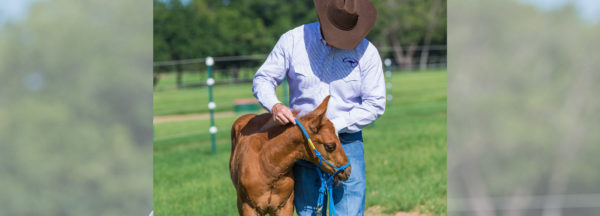Raising Foals Correctly

If you have a foal or are expecting a foal this year, you have a serious responsibility on your hands. The work you do with your young horse now will set the foundation for a successful future.
“I treat foals the same way I treat adult horses, as far as earning their respect and the way I interact with them,” Clinton says. “A foal will crowd your space, nip at you, kick out at you and do all the dangerous behavior an adult horse does, but people tend to let their foals get away with things. And the foals’ behavior just gets worse and worse and worse.”
All bad behavior starts somewhere. “Horses aren’t born knowing right from wrong; they only know what they’re allowed to get away with. If you teach your foal to respect you and practice moving his feet forwards, backwards, left and right and always reward the slightest try, you’ll teach him to be a respectful, willing horse,” Clinton says. “On the other hand, if you allow him to get away with bad behavior, while it may be cute now when he’s little and can’t do much damage, it won’t be so cute when he’s a 1,200-pound adult.”
Working with young horses is very rewarding and they learn quickly – both good behaviors and bad behaviors. “Make a goal to teach your foal the correct behavior from the get-go so that you have a foundation from which to build a successful partnership,” Clinton says.
In the Foal Training Series, Clinton works with two foals, one imprinted at birth and one not, to demonstrate his approach to training young horses. The training kit covers all aspects of handling and training a foal, from initial leading lessons to handling feet and teaching a young horse to stand tied up patiently. Learn all about the Foal Training Series on our website.
